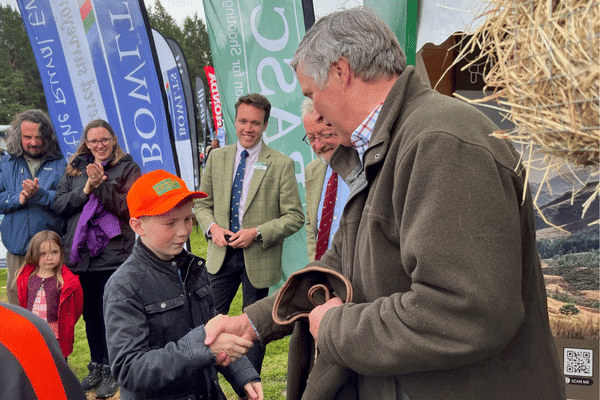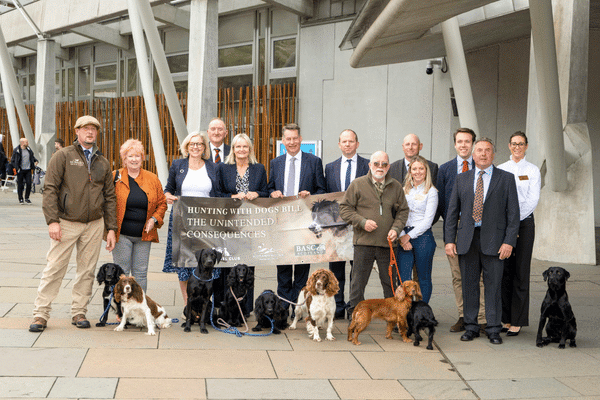
Leaflet launched offering mental health support to firearms licence holders
The leaflet aims to highlight the support that is available to certificate holders and encourages those who need help to seek it.
Get information on the legal shooting season for mammals and birds in the UK.
Learn about our current conservation projects and how you can get involved.
Comprehensive information and advice from our specialist firearms team.
Everything you need to know about shotgun, rifle and airgun ammunition.
Find our up-to-date information, advice and links to government resources.
Everything you need to know on firearms law and licensing.
All the latest news and advice on general licences and how they affect you.

BASC Scotland has reinforced its calls for a community deer management pilot scheme in light of a new round of Scottish government deer contracts.
The Scottish government agency responsible for managing publicly owned forestry – Forestry and Land Scotland (FLS) – has announced plans to cull a fifth of Scotland’s wild deer population over the next five years, awarding a five-year tender worth up to £30 million of taxpayers’ money for ten regional contracts.
In response to the move, BASC Scotland has renewed its calls on FLS to establish a pilot project, through its ‘Our Deer – Community Integrated Deer Management in Scotland’ vision which launched last September.
The vision, which is being brought forward by a partnership of 11 leading deer management stakeholders, aims to institutionalise what is being described as ‘community integrated deer management’. This involves establishing more opportunities for trained recreational deer stalkers to manage deer on public land in their local area.
Scotland’s deer population is estimated to be in excess of one million, but many trained recreational deer stalkers in Scotland struggle to access deer management opportunities locally.
BASC Scotland believes that the inclusion of recreational stalkers and community larders could provide significant opportunities in remote and rural areas, reduce the burden on public finances, as well as help Scotland reach net zero emissions targets by reducing the carbon footprint of food entering the local supply chain.
BASC Scotland Public Affairs Manager Peter Clark said: “We recognise that Forestry and Land Scotland must have contracts in place to manage deer on publicly-owned land, but there has to be many more opportunities for recreational deer stalkers.
“The Scottish government should ask all statutory agencies and local authorities to conduct a review of their deer management leases, which would identify public landholdings which could be managed by recreational deer stalkers in their local area.
“This would be dependent on the success of any future pilot scheme, however we know among BASC members there is an appetite to contribute and stalk locally to bring high quality venison into the food supply chain.
“In our correspondence with FLS regarding the pilot scheme, we stated that deer management must be more localised, and if we are to celebrate the success of local produce, recreational stalkers must be given the opportunity to contribute to that story.”

The leaflet aims to highlight the support that is available to certificate holders and encourages those who need help to seek it.

The Junior Macnab Challenge, held at the Moy Country Fair, proved more popular than ever.

BASC has joined forces with Scotland’s Regional Moorland Groups and the Kennel Club to raise their concerns about the Hunting With Dogs (Scotland) Bill,
Sign up to our weekly newsletter and get all the latest updates straight to your inbox.
© 2023 British Association for Shooting and Conservation. Registered Office: Marford Mill, Rossett, Wrexham, LL12 0HL – Registered Society No: 28488R. BASC is a trading name of the British Association for Shooting and Conservation Limited which is authorised and regulated by the Financial Conduct Authority (FCA) under firm reference number 311937.
If you have any questions or complaints about your BASC membership insurance cover, please email us. More information about resolving complaints can be found on the FCA website or on the EU ODR platform.
This website uses cookies so that we can provide you with the best user experience possible. Cookie information is stored in your browser and performs functions such as recognising you when you return to our website and helping our team to understand which sections of the website you find most interesting and useful.
Strictly Necessary Cookie should be enabled at all times so that we can save your preferences for cookie settings.
If you disable this cookie, we will not be able to save your preferences. This means that every time you visit this website you will need to enable or disable cookies again.
This website uses Google Analytics to collect anonymous information such as the number of visitors to the site, and the most popular pages.
Keeping this cookie enabled helps us to improve our website.
Please enable Strictly Necessary Cookies first so that we can save your preferences!
More information about our Cookie Policy